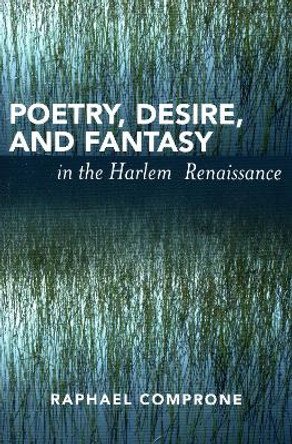Description
About the Author
Wendy Beth Hyman is Associate Professor of English and Comparative Literature at Oberlin College. She received her MA and PhD from Harvard University, and her BA at Smith College. Professor Hyman is the editor of The Automaton in English Renaissance Literature, and, with Hillary Eklund, co-editor of Teaching Social Justice Through Shakespeare. She has published on early modern mechanical birds, Spenser's Faerie Queene, the influence of literary insects on early microscopy, physics and metaphysics in early modern lyric, jacquemarts and Jack Falstaff, Nashe's Unfortunate Traveller, metaphoricity and science, and the pedagogy of book history.
Reviews
She has wonderful things to say * Joseph Loewenstein, SEL Studies in English Literature 1500-1900 *
The astonishing achievement of Wendy Beth Hyman's Impossible Desire and the Limits of Knowledge in Renaissance Poetry, then, is to undo everything we thought we knew about the carpe diem genre. Without denying its scriptedness, Hyman argues that lyrics like Carew's "Persuasion to Enjoy" or Marvell's notorious "To His Coy Mistress" are more than witty pickup lines with a classical pedigree. Instead, their injunctions to "make much of time" offer a cover for acts of imaginative world-making, for a profound skepticism about the afterlife, and for heady conversations with science and art. In Hyman's handling, the tight rhetorical turns of a carpe diem poem expand to accommodate the problem of how we know. * Dianne Mitchell, Shakespeare Quarterly *
Wendy Beth Hyman's Impossible Desire and the Limits of Knowledge in Renaissance Poetry is one of those rare books that will immediately change how I teach. * Ryan Netzley, Restoration *
... it has been worth waiting for the impressive body of detail and astute critical perspective Hyman's book offers. [...] The book expands significantly how we should think about the genre of the invitation to love (and seduction) poem, and our sense of how deep and diverse are the imaginative making and signifying powers of a form that gave energy to Renaissance love writing-and that has become, for many readers, the essence of Renaissance love poetry. * Goran Stanivukovic, Renaissance and Reformation *
This is scholarship at its best. * A. Chapman, University of Alabama, Birmingham, CHOICE *
Impossible Desire provides fascinating insight into the boldness and the breadth of the thoughts that carpe diem poets pursued through their erotic invitations. ...the book not only pays careful attention to the "impossible" thoughts that early modern carpe diem poets were willing to engage; it invites us to scrutinize afresh how they understood possibility itself. * Tessie Prakas, Scripps College, Modern Philology *
Wendy Beth Hyman's fascinating, wide-ranging, and decidedly feminist account of the genre now vividly reveals both its stark contours and philosophical depths. * Dympna Callaghan, Syracuse University, Renaissance Quarterly *
Hyman's work is a welcome addition to the growing body of criticism which acknowledges poetry's complex and inimical relationship with epistemological concerns, changing discourses of knowledge, and the limitations thereof. That Hyman finds these anxieties focused in a particularly misogynistic genre adds an additional layer of thought which interrogates the relationship of the feminine figure of Knowledge within these debates. Ultimately, the male poet is left at a crossroads of unfulfillment and uncertainty. * Rachel White, Newcastle University, Renaissance Studies *
This book will establish Wendy Beth Hyman as one of the principal critics of early modern secular lyrics. Her impressively original arguments advance our understanding of literature and science, materiality, and literary form, among many other cutting-edge issues. Impossible Desire will be of interest not only to students of early modern poetry but also to academics engaged with literature of other periods and with other disciplines, notably the visual arts. * Heather Dubrow, Fordham University *
Impossible Desire reveals the startling philosophical seriousness of erotic carpe diem poetry. Though such verses are ostensibly designed to seduce reluctant virgins, we learn here that their flirtatiousness belies confrontational and even sacrilegious forays into metaphysical debates. Far from conventional, then, these licentious verses house skeptical philosophical experiments that posit the improbability of life after death and postulate a non-Christian cosmos. Hyman thus shows that if we want to find "impossible" thoughts in the Renaissance, we need look no further than these audacious provocations to "seize the day." Learned and gorgeously written, this book shows how Renaissance seduction poetry stalks the limits of human understanding. * Jenny C. Mann, Cornell University *
This book compels us to revise received understandings of carpe diem lyrics as predictably insouciant confections. Hyman shows that this poetry's ambition is to make possible the expression of unthinkable postulations about matter and religion, gender, and epistemology. As elegant and witty as it is smart and innovative, Impossible Desire situates erotic expression at the center of intellectual history. * Melissa Sanchez, University of Pennsylvania *
In Impossible Desire and the Limits of Knowledge in Renaissance Poetry Wendy Beth Hyman establishes the surprising contribution of the carpe diem poem to early modern epistemology...There is real pleasure in this book in watching Hyman unfold her topic: to take this lyric form, often overlooked, and to use it to think with. * Katherine Hunt, University of East Anglia *
Awards
Winner of CHOICE Outstanding Academic Title 2021.
Book Information
ISBN 9780198837510
Author Wendy Beth Hyman
Format Hardback
Page Count 216
Imprint Oxford University Press
Publisher Oxford University Press
Dimensions(mm) 238mm * 164mm * 20mm





